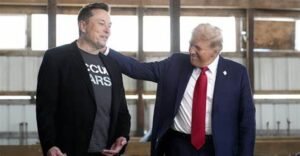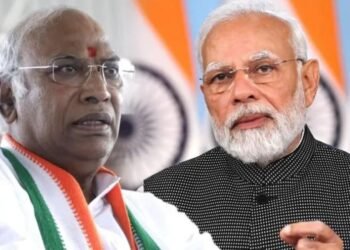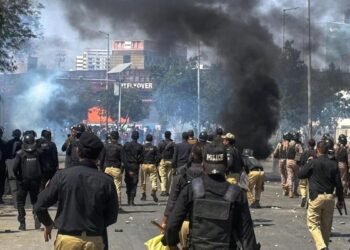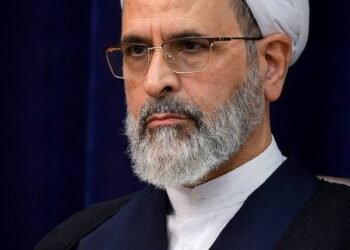A U.S. court hears a stunning argument: that Donald Trump offered trade incentives to India and Pakistan in exchange for a ceasefire—an assertion India categorically denies.
BY PC Bureau
Despite India’s firm denial of any foreign mediation in the recent ceasefire with Pakistan following the brief but intense Operation Sindoor, the Trump administration has doubled down—this time not in a rally or on social media, but in a formal legal document submitted to a U.S. federal court.
In a significant development, the Trump administration has told the U.S. Court of International Trade (CIT) in New York that former President Donald Trump personally intervened to prevent a full-scale war between India and Pakistan by offering both nations enhanced trade access to the U.S. market. The claim was made as part of a written filing dated May 23, 2025, submitted by U.S. Commerce Secretary Howard W. Lutnick. This marks the first time such an assertion has been made under oath and within the framework of official court proceedings, lending it a degree of gravity absent from Trump’s usual public rhetoric.
 READ: DOGE Drama Ends: Musk Leaves with Scars and Scrutiny
READ: DOGE Drama Ends: Musk Leaves with Scars and Scrutiny
The filing is part of a broader legal defense against a lawsuit brought by several small American businesses. These companies are challenging Trump-era global tariffs—including a sweeping 10% levy on nearly all imports and targeted sanctions against specific countries—imposed under the International Emergency Economic Powers Act (IEEPA). The law allows the U.S. President to enact economic sanctions during a national emergency, and the case is being closely watched for its potential to redefine presidential powers over international trade.
In his declaration, Lutnick warned that weakening the president’s tariff authority could have serious geopolitical repercussions. As an example, he cited the May 2025 military flare-up between India and Pakistan—both nuclear-armed neighbors with a volatile history.
“India and Pakistan—two nuclear powers engaged in combat operations just 13 days ago—reached a tenuous ceasefire on May 10, 2025. This ceasefire was only achieved after President Trump interceded and offered both nations trading access with the United States to avert a full-scale war,” the court filing stated. Lutnick further emphasized that any adverse ruling “could lead India and Pakistan to question the validity of President Trump’s offer, threatening the security of an entire region and the lives of millions.”
Trump has often claimed he used trade to halt India-Pakistan hostilities. Now, for the first time, his administration has made that claim in an official filing (signed by US Commerce Secy) before a US federal court.https://t.co/UijDgtUhw2 pic.twitter.com/dn7VLxgk5g
— Devirupa Mitra (@DevirupaM) May 28, 2025
India Denies Involvement of Trade or U.S. Mediation
However, the Indian government has strongly refuted the notion that trade incentives or American intervention played any role in halting hostilities. Officials in New Delhi have repeatedly stated that the ceasefire was the result of direct bilateral backchannel communication initiated by the Pakistani military and facilitated through regional military-to-military contacts.
 READ: Signage Row: Governor Skirts Blame, Army Dragged into Debate
READ: Signage Row: Governor Skirts Blame, Army Dragged into Debate
A senior official in the Ministry of External Affairs recently told reporters that “trade was never brought up in any conversation between Indian and U.S. officials during the escalation. The decision to de-escalate was made through our own channels and in accordance with India’s strategic priorities.”
This contradiction has also stirred political ripples within India. The opposition Congress party has demanded that Prime Minister Narendra Modi publicly clarify whether any foreign guarantees or incentives were part of the ceasefire negotiations. “The people of India have a right to know if trade access was bartered for peace,” a Congress spokesperson said in a press briefing.
Legal Stakes and Strategic Implications
While the court case centers on the limits of executive authority over trade, the Trump administration’s filing has introduced a far more explosive geopolitical narrative into the proceedings. By tying the legality of tariff powers to international peace and security, the administration aims to portray trade tools not just as economic levers, but as instruments of global diplomacy.
Experts say this strategy could raise concerns in New Delhi. “If Trump’s offer of trade access was part of informal diplomacy and is now being used as a legal argument in a U.S. court, it places India in a difficult position,” said a former Indian ambassador. “It may suggest that strategic understandings are being repurposed for domestic political gain in the U.S.”
As the Court of International Trade considers its ruling, the question remains: Was Trump’s claimed offer merely a political boast or an unacknowledged tool in one of South Asia’s most fragile peace deals in recent years?
Either way, the filing has ensured that the May 2025 ceasefire will remain not just a matter of regional diplomacy—but a footnote in U.S. legal history.














